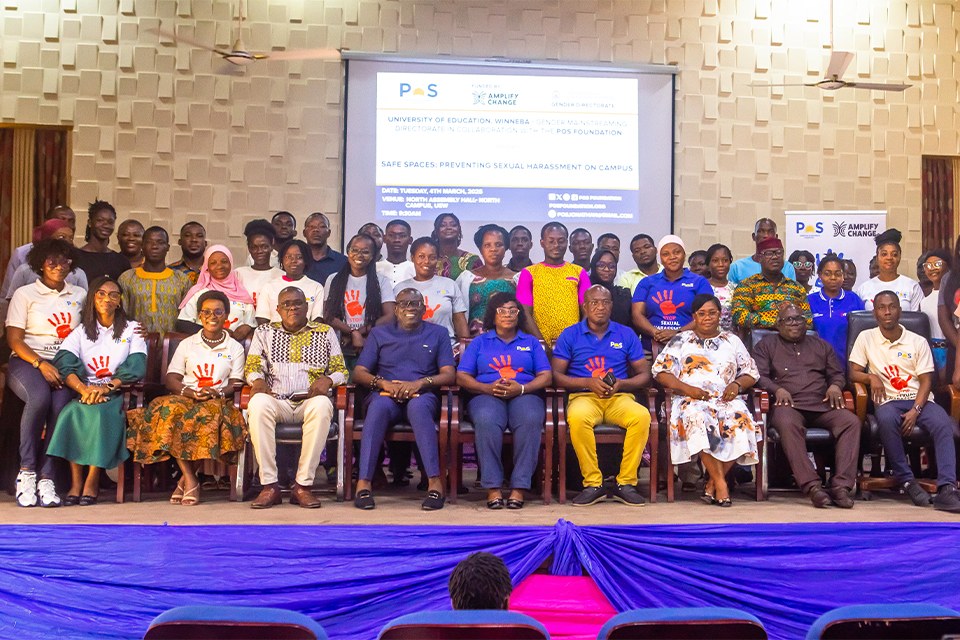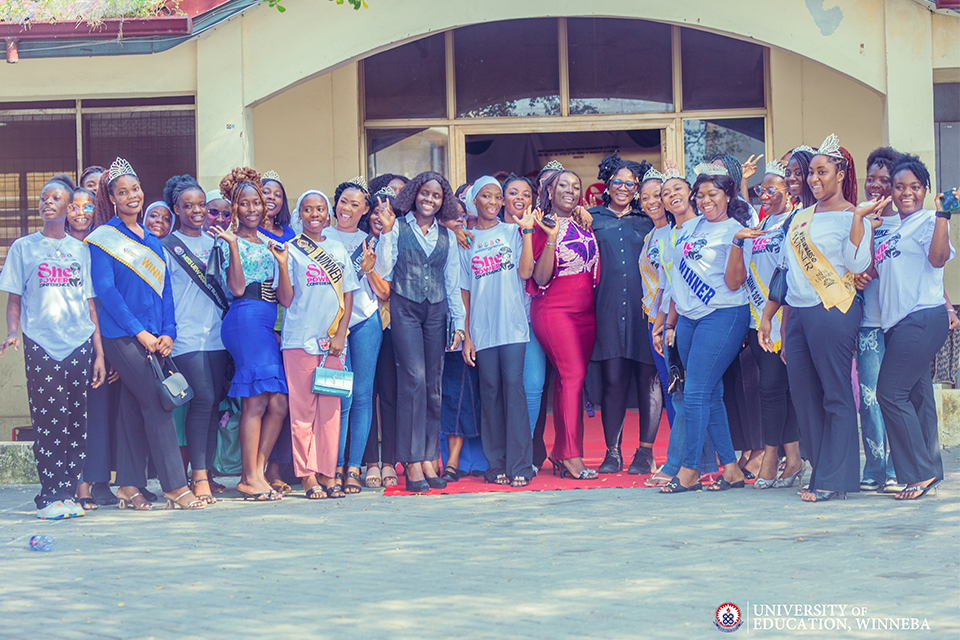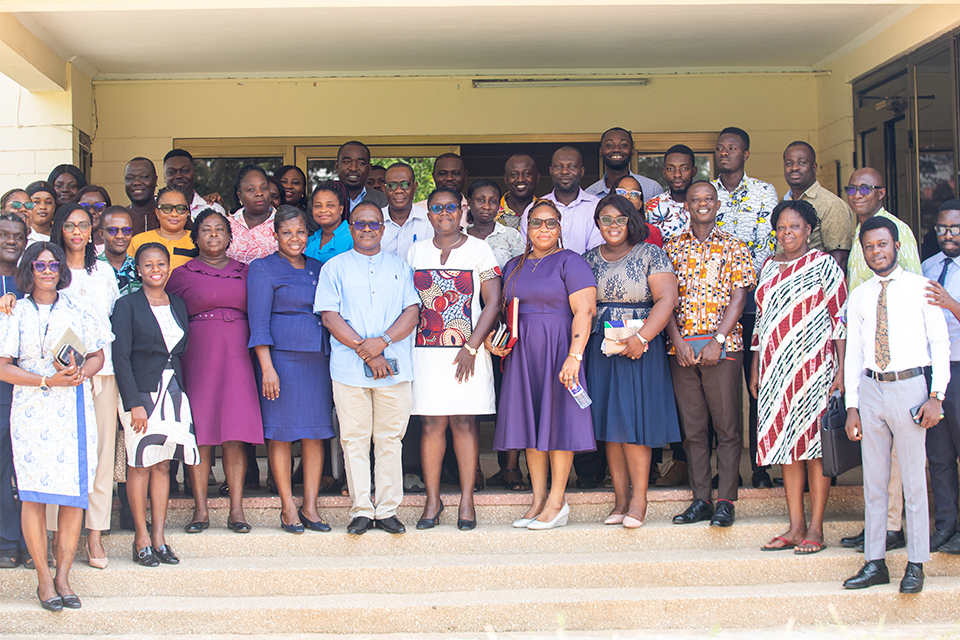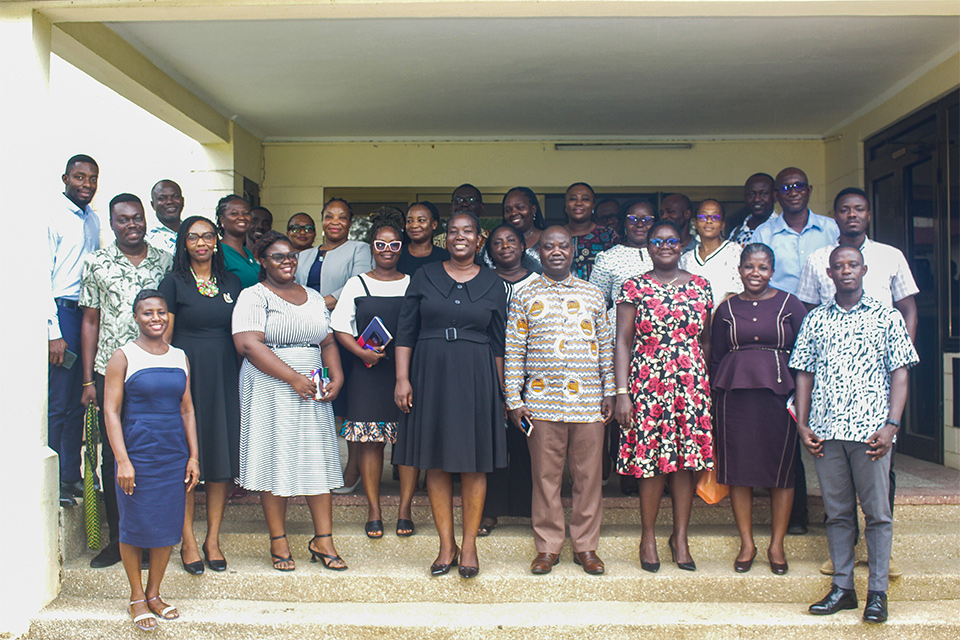GMD-UEW Champions Gender Equality at International Women’s Day Conference

The Gender Mainstreaming Directorate (GMD) at the University of Education, Winneba (UEW), reaffirmed its commitment to gender equality and empowerment at the International Women’s Day Conference, which was themed “Accelerate Action.”
The event, held at the North Campus Mini-Conference Room on Wednesday, 12th March, 2025, brought together distinguished guests, academics, legal experts, policymakers, students, and advocates to deliberate on strategies to fast-track gender inclusivity and equity in all sectors of society.
With emotion-filled speeches and personal testimonies of struggle and triumph, the event painted a vivid picture of the challenges women continue to face—from economic disparities and workplace discrimination to systemic gender biases in leadership and education. Yet, at its core, the conference was a rallying cry for change, urging society to move beyond rhetoric and take concrete steps towards equality.

Mrs. Karen Eyram Okoro, Assistant Registrar at GMD-UEW, underscored the need for urgent and transformative measures to address systemic barriers hindering women’s progress. She highlighted persistent challenges such as unequal pay, limited educational opportunities, and underrepresentation in leadership positions, calling for decisive action to dismantle these barriers.
“Despite decades of effort, gender inequality remains deeply entrenched in many societies. To ‘accelerate action’ means to move beyond ineffective practices and implement bold, meaningful changes that will drive true gender equality,” she stated.
Mrs. Karen Okoro stressed that institutions must be held accountable for their commitments, urging them to deliver results with greater speed and efficiency. She also commended UEW for its ongoing efforts in promoting gender equity and reaffirmed the university’s pledge to create an inclusive academic and social environment. She urged all stakeholders to collaborate in ensuring women’s rights are prioritised.

Legal practitioner Paa Kwesi Ndom Dampson, Esq., a resource person, spoke extensively on the recently passed Affirmative Action Bill—a law that now requires organisations, both public and private, to ensure that at least 30% of their workforce is female by 2026, increasing to 50% by 2030. He did not mince words in emphasising its legal weight, warning that institutions that fail to comply would face strict penalties, including hefty fines and possible imprisonment.
"This is no longer a matter of preference. It is the law. The time when gender equality was seen as an ‘optional initiative’ is gone. Companies and institutions that do not meet the required quotas will be held accountable. Justice will no longer be a suggestion—it will be enforced," he stated emphatically.
The legal expert further noted that the bill extends beyond recruitment, targeting equal pay, gender-based discrimination, and leadership representation. "We are no longer asking for fairness—we are ensuring it," he said.

Prof. Lucy Effeh Attom, Director of the Institute for Institutional Advancement (OIA) at UEW, shared her experience in academia, recalling how she was once overlooked for leadership roles simply because she was a woman.
"Women are often told to ‘wait for their turn,’ but what they mean is ‘wait forever. We cannot wait anymore. We must take our places at the table, and if the table is too small, we must build a bigger one. When women rise, society rises with them; we need men to be active allies, not passive bystanders. Equality benefits everyone," she asserted.

Dr. (Mrs.) Felicia Esinam Pufaa shared her emotional testimony of growing up in a village without electricity relying on moonlight to study with attendees. "Where I come from, the idea of a girl becoming a professor was almost unheard of, but I refused to let my background dictate my future. Every girl deserves the chance to dream big and achieve her full potential. If we want more success stories like mine, we must create environments where young girls are encouraged not discouraged, from reaching for greatness," she remarked.
Her story resonated beyond the walls of the conference hall, serving as a powerful testament to the resilience of women and the undeniable potential often stifled by systemic barriers.
The conference provided a platform for participants to engage in meaningful discourse, share experiences, and explore strategies for accelerating gender equality efforts in Ghana and beyond.
The conference underscored UEW’s leadership in championing gender equality and empowering students and faculty to contribute to a more equitable future.














